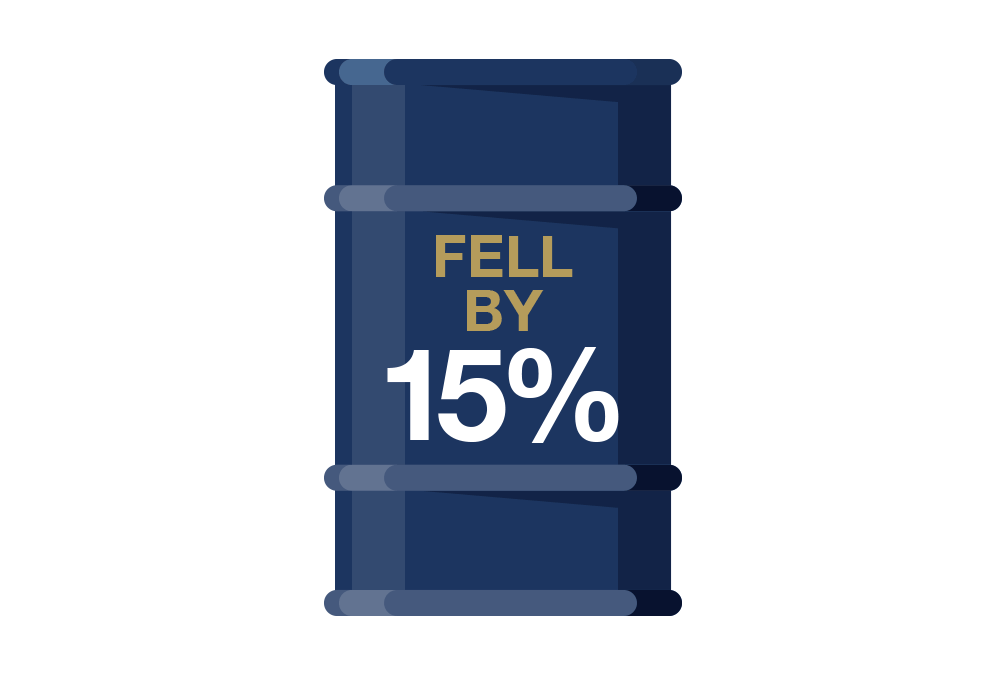The final quarter of 2023 began on an uncertain note as conflict erupted in the Middle East. The tragic events that unfolded further complicated the geopolitical landscape, although markets shrugged this off, and oil prices fell 15% during the quarter. The overarching investment narrative continued to focus on the future path of inflation and interest rates. However, sentiment finally shifted towards lower interest rates and inflation in 2024, departing from the prevailing narrative for most of 2023, which suggested higher rates for a longer period. The genesis of this narrative shift was a series of better-than-expected inflation figures in America, Europe, and the UK. Naturally, markets assumed that this would give central banks the ability to start cutting interest rates in 2024, especially as this was coupled with relatively strong, albeit weakening, economic data. This Goldilocks scenario caused most asset classes to rally quite meaningfully in November and December.

The US stock market continued to perform strongly, especially given the continued interest in artificial intelligence and the large number of technology companies in America. Technology companies delivered their strongest returns since 2009, with the largest seven accounting for 80% of the total gains in the US market. Interestingly, 72% of companies in the US stock market underperformed the overall market, the highest level since 1980. The divergence of performance between technology companies and the rest of the stock market is something that we expect to unwind, to a certain extent, over the coming years. UK and European equities also delivered strong returns over the quarter, though they lagged behind the US market given the small number of technology companies listed in the UK and Europe.
In most markets, larger companies performed better during 2023 as a whole, but worse during the final quarter, largely due to inflation and interest rate expectations. Larger companies now trade at significantly higher valuations than medium and smaller-sized companies, which potentially provides investors buying opportunities.
Emerging market equities delivered a relatively weak performance over the quarter, hindered by weakness in the Chinese stock market caused by poor economic data. Better returns were seen elsewhere, notably in the Indian market, where investors are attracted to the strong economic growth and very favourable demographics.
Fixed-interest markets performed well over the quarter, offering some welcome respite given the historically terrible returns seen over the past few years. UK government bonds returned over 8%, causing the yield on the ten-year bond to fall from 4.7% to 3.5%.
As we enter 2024, some of the risks that dominated 2022 and 2023 have started to subside, but others, such as the conflict in the Middle East and slowing economic growth, remain. It is likely markets may pause for breath after the strong performance witnessed in November and December and could experience volatility if rate cuts fail to materialize as expected. However, many markets and asset classes continue to look very attractive over the medium-long term.

Market Commentary January 2024
The final quarter of 2023 began on an uncertain note as conflict erupted in the Middle East. The tragic events that unfolded further complicated the geopolitical landscape, although markets shrugged this off, and oil prices fell 15% during the quarter. The overarching investment narrative continued to focus on the future path of inflation and interest rates. However, sentiment finally shifted towards lower interest rates and inflation in 2024, departing from the prevailing narrative for most of 2023, which suggested higher rates for a longer period. The genesis of this narrative shift was a series of better-than-expected inflation figures in America, Europe, and the UK. Naturally, markets assumed that this would give central banks the ability to start cutting interest rates in 2024, especially as this was coupled with relatively strong, albeit weakening, economic data. This Goldilocks scenario caused most asset classes to rally quite meaningfully in November and December.
The US stock market continued to perform strongly, especially given the continued interest in artificial intelligence and the large number of technology companies in America. Technology companies delivered their strongest returns since 2009, with the largest seven accounting for 80% of the total gains in the US market. Interestingly, 72% of companies in the US stock market underperformed the overall market, the highest level since 1980. The divergence of performance between technology companies and the rest of the stock market is something that we expect to unwind, to a certain extent, over the coming years. UK and European equities also delivered strong returns over the quarter, though they lagged behind the US market given the small number of technology companies listed in the UK and Europe.
In most markets, larger companies performed better during 2023 as a whole, but worse during the final quarter, largely due to inflation and interest rate expectations. Larger companies now trade at significantly higher valuations than medium and smaller-sized companies, which potentially provides investors buying opportunities.
Emerging market equities delivered a relatively weak performance over the quarter, hindered by weakness in the Chinese stock market caused by poor economic data. Better returns were seen elsewhere, notably in the Indian market, where investors are attracted to the strong economic growth and very favourable demographics.
Fixed-interest markets performed well over the quarter, offering some welcome respite given the historically terrible returns seen over the past few years. UK government bonds returned over 8%, causing the yield on the ten-year bond to fall from 4.7% to 3.5%.
As we enter 2024, some of the risks that dominated 2022 and 2023 have started to subside, but others, such as the conflict in the Middle East and slowing economic growth, remain. It is likely markets may pause for breath after the strong performance witnessed in November and December and could experience volatility if rate cuts fail to materialize as expected. However, many markets and asset classes continue to look very attractive over the medium-long term.